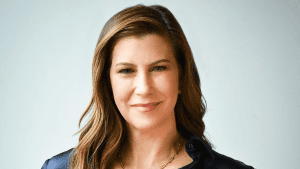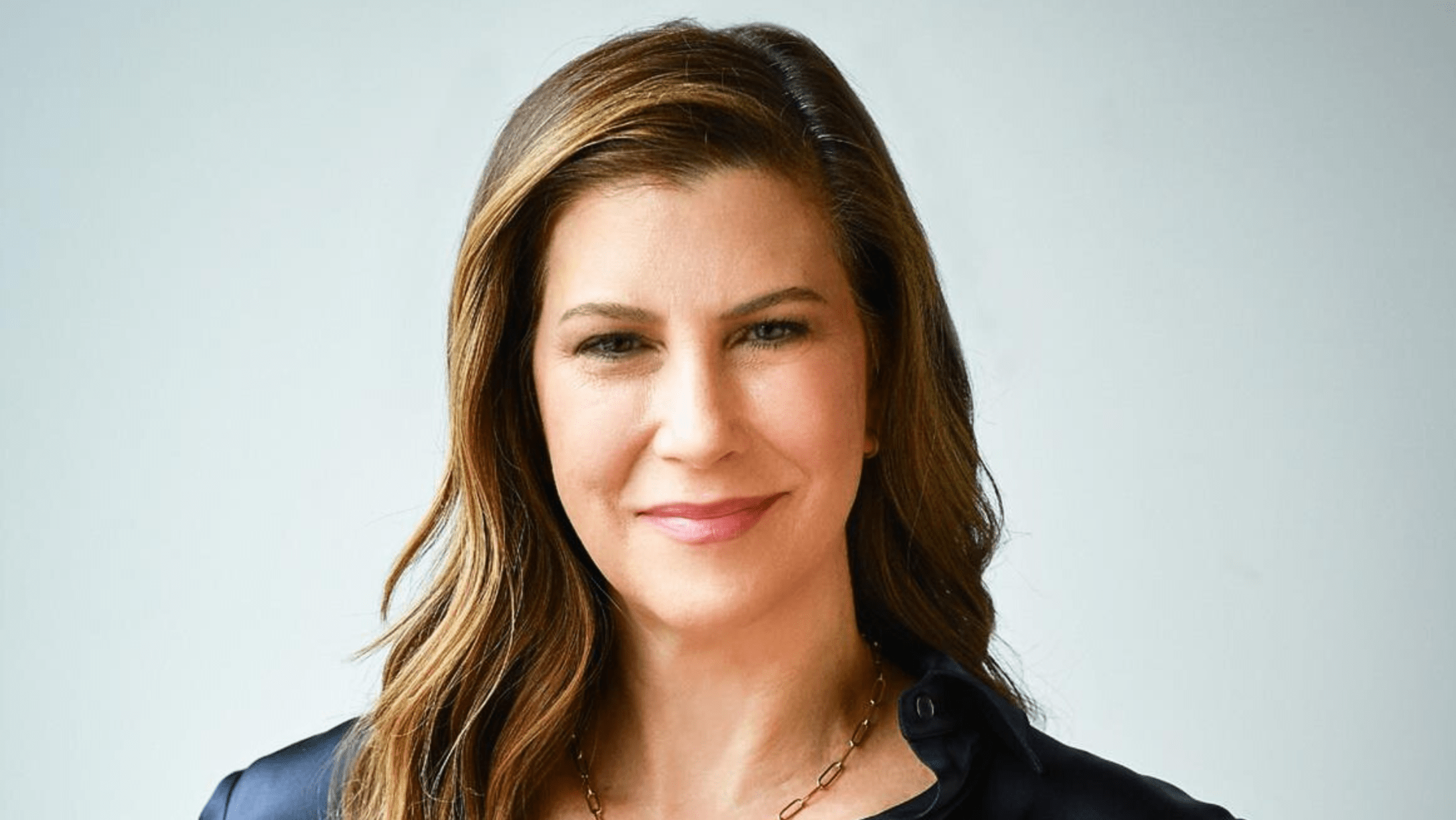If you’ve ever thought about investing in real estate but felt overwhelmed by the nature of it then you may have something in common with Khushboo Jha, the CEO of BuyProperly.
Between the high prices and complicated system, she was almost ready to give up but the hope of a solution kept her motivated.
“I started looking for options and said ‘Ok, what is out there? I mean, there has to be a solution.'” says Jha, “In the UK and in Australia and elsewhere, a lot of these fractional models were coming up in various forms and manners and that led me to explore and say ‘Ok, maybe we need to create one.’ If I can’t find one, then we need to create one” she adds.
BuyProperly is an online real estate investing platform that hit the market right as COVID-19 struck. Dedicated to making real estate investments accessible to every Canadian, Jha and her team created the new hidden gem of real estate investing.
Though, her path to real estate wasn’t necessarily traditional. Straight out of the University of Pennsylvania, Jha made her way up the ladder at Amazon where she launched two businesses with the company and came to see the upside of automation in technology. Unbeknownst at the time, the skills she would acquire with the e-commerce giant would ultimately help make her debut in real estate such a roaring success.
Using fractional investing, a method where you don’t have to invest all your money at once, BuyProperly is allowing Canadians to make the first deposit on a property for as low as $2,500. Beyond only having to invest a reasonable amount of money, Jha and her team are streamlining the process for everyone by taking care of your investment from start to finish.
“You put in the money, you sit back and relax and that’s it,” says Jha.
For this week’s Women Who Lead, Bay Street Bull talked to Khushboo Jha, CEO of BuyProperly, about how she made a name for herself in the world of tech and real estate by making real estate investing accessible and easy for everyone.
—Q&A with Khushboo Jha of BuyProperly
Tell me about yourself and your background before founding BuyProperly.
Before founding BuyProperly, I used to work at Amazon. I was there for a long time, almost six years. I started working with Amazon in the U.S., then I moved to the UK, and then I moved to Canada. While I worked there, I was fortunate to actually have launched two businesses with them, which were both unique. One was in the electronic space and one was in a hazardous material space. Literally, I started as a one-person team and then grew the team over time. From the U.S. to the UK, to Europe, to Japan, it just expanded globally. That was a great learning experience. That’s also the place where I learned how to leverage AI and integrate it as part of a business line.
I had actually joined Amazon from business school, so I did my MBA in the U.S. at Wharton School, the University of Pennsylvania, and I majored in finance and entrepreneurship. Clearly, entrepreneurship was always on my mind. Prior to that, I used to be a strategy consultant. So I’ve worked in Asia, Europe, and North America.
Why did you start BuyProperly?
The reason why I started BuyProperly is that I was frustrated with the fact that I couldn’t invest in real estate. I had a job, I was earning a decent amount, and I’m a big saver. But, I still couldn’t invest in real estate. It was annoying because you have options to play in stocks and bonds—I had a lot of stocks to Amazon compensations and I had a lot of Amazon stocks—but if I wanted to invest in real estate, I saved up 20, 30, $40,000 in a year, I still couldn’t do much with it. I started looking for options and said ‘Ok, what is out there? I mean, there has to be a solution.’ I couldn’t find any good options. I’m sure you could put more money in the stock market as you can put money into real estate stocks, but you couldn’t buy a property. In the UK and in Australia and elsewhere, a lot of these fractional models were coming up in various forms and manners and that led me to explore and say, ‘Ok, maybe we need to create one. If I can’t find one, then we need to create one.’
How were you able to leverage the skills and lessons you learned from your time at Amazon?
Even though we are a startup, our analysis and due diligence are very institutional grade. We are very rigorous in deals that we bring in, the properties that we analyze. The most important thing we try to do is automate and standardize, because unless we automate, there’s no way we can serve everyone effectively. If I have to allow people to invest starting at $2,500, which is what our minimum is, then unless I’m automating a large part of the process and making it overall cheaper, I wouldn’t be able to serve that customer cost-efficiently. That’s something that I learned at Amazon—that if you have to serve a lot of people, you have to make sure that it’s automated and there’s a lot of technology that then reduces your costs and allows you to do it better.
The second big thing that we apply every day that I learned in my past experience was this whole concept of customer obsession. There’s only one objective: to get the customer’s options to invest in good deals. That’s it. If it makes everyday life easier for the customer, we’ll do it. If it makes life convenient, we’ll do it. If it makes returns better for the customer, we will do it. We take on all operational hazards for the end customer, and we make sure that the whole process is simple. Real estate is not only expensive, it is also complicated and intimidating. It’s stressful even to think about it, nobody gets up in the morning and says ‘Hey, let me buy some property today.’ It is impossible to do that. We work hard to make it easy. We want our process to be an Amazon-like experience: Choose and checkout. That’s it, you’re done. Your investments are in and you get your documents in a dashboard, you can track them there and you can see all your reports back.


Can you tell me more about fractional investing and the benefits?
Fractional investing is like regular real estate investing, except you don’t have to shell out all of the money. If you were to have five other friends who were putting in money, that’s kind of how it works, which makes it accessible to everyone. That’s the big benefit of fractional investing.
You can definitely go buy the full house yourself, but then if you are in Canada, the prices are $700,000 and the average salary is much lower. Seventy percent of Canadians earn $100,000 or less, which means the down payment for the $700,000 house is not easy. It’s not something you can do on a regular basis, and that’s one huge problem. The other difference from doing a private deal is: pretend you saved up $50,000 and you can put all of the money into one house. You find one in some remote area and say ‘Ok, I’ll put all my money in that.— Or, you can split that into five different houses and say ‘You know what I’m investing $10,000 in Vancouver, $10,000 in Hamilton, and $10,000 in Toronto.’ That’s a much better strategy than putting all your money on exactly one house.
The third and the most important piece—which isn’t true to fraction investing in general, but more how we do it—is we’re taking all of the hassles and you have to do nothing. You put in the money, you sit back and relax and that’s it. You get quarterly dividends because these are investments into rental properties, they’re rented out and they generate rent. Every quarter you get a dividend equal to the end of the net rent, and at the end of five years, the property sells and you get a share of that price. Meanwhile, for those five years, it’s like owning a stock or a mutual fund. You’re not running that company, you don’t care how the supply chain works. You put in the money, you get your dividends and you sell the deposition. That’s it.
Did you have challenges when building BuyProperly – how did you overcome them?
We wanted to move quickly. We wanted to keep our pace, but there was a lot involved to make this process simple, so it’s not like we can change the whole industry overnight. We wanted to get to that optimal level of experience. The second big thing is, it is a regulated product, it’s an investment, it’s people’s hardware and money. There’s a lot of legal tech that sits behind this, there are tons of legal and compliance aspects that we adhere to.
Automating that whole process that you probably spend hours at the bank for, it’s all automated and happening in less than seven minutes for us. That was another big piece that was new and unique, it wasn’t like you could say ‘Oh that company does it, so we’ll just do exactly what they are doing.’ They weren’t proceeding from the Canadian market. We had to go figure it out and convince our partners to say ‘We want to do this and you have to trust us.’ We had to educate people and say this is how it works. Not just customer education, but also partner education with the various people in the value chain.
How did COVID impact your entry to market?
I think COVID has its pros and cons. COVID doesn’t make life easy for a startup, of course. Fundraising is difficult, hiring is difficult, but then there are advantages as well because now everybody wants to do stuff online. You can’t go into open houses, so now we started attracting people who would otherwise have actually bought the whole house. They’re like, you know what, instead of putting down $120,000 on a downpayment, I’ll just split it and invest it across five properties instead. COVID has kind of made people take note of an online investing option even more. That way it has helped us quite a bit in terms of generating customer interest
What kind of long-lasting impact do you hope that BuyProperly will have on the real estate market in general?
The most important thing that we want BuyProperly to be able to do is make real estate accessible to everyone. People can actually wake up in the morning and say, you know what, I’m feeling like I should buy some property today. Let me just go online and buy some before I head to the office. Let me browse and see what I can invest in. The intent is to make it simple and not intimidating. For people, that’s one big change that I would want BuyProperly to have as an impact. Overall, especially in Canada, real estate is not accessible to younger people. Millennials and gen Z are completely priced up. You can think of real estate in two ways;(1) you’re living in it and it’s your house; (2) you invest in it and generate wealth. Neither of those are an option with the prices that we have in Canada. Its one objective is to say everybody should have that access. For now, our objective is to solve the investing problem and hopefully, we will get to the other living in the house problem as well.
As a male-dominant space, did you find it hard breaking into the tech industry?
As a woman coming from a stem background, I’m used to this. When I entered undergrad from engineering, I was in a class of 575 boys and 27 girls. It’s quite normal to be the only girl in the class at times. Of course there are challenges. Sometimes people are more covert about it so it’s more subtle, sometimes it’s more in your face. I think both investing and tech are things that women aren’t as dominant in. We are at the intersection of investing and tech, and investing in real estate, which is also not a women-friendly industry in general. I’m taking it in my stride. These challenges will happen and you have to kind of face it while you’re doing it. The advantage that you have is if you’re not core or standard in the industry, you also bring a fresh perspective. You don’t have to follow the norm, you can come up with a more creative solution because people are not expecting anything from you in any way. Those are the advantages of being a woman in that industry.
What is the best advice that you’ve ever received?
One was just always doing the right thing, whether it’s by your employees or your partners or your customers, you have to make sure that you are doing the right thing for your stakeholders at any given point in time. Profits and gains will usually follow, and even if they don’t, you know that in the long run you would have had an impact and a positive impact. That was one piece of advice that I’d gotten early on. The whole world is in this car race trying to catch up, and so it’s important to remember to do that, to always do the right thing.


Who would you say is a woman who leads in your life?
If I were to go cliche, I would probably say my mom. She’s a lawyer and she’s a pretty firebrand lawyer. She would not take up a case if she feels that it is incorrect or if it’s against her principles. She’ll stand by that when she’s working hard and she’s focused, like nothing can distract her from the work and when she’s done, then she switches off like magic. I feel like I’ve learned the value of hard work and in being honest and transparent from her quite a bit.
In the tech industry, there are quite a few role models that I do have that I look up to. Amazon has a lot of women, and a lot of senior women leaders. One of my first bosses was a woman named Ayesha Harper. She would always ask and encourage the team to come up with new perspectives and question everything. Don’t assume that there’s a reason why something is being done a certain way. Let’s just assume that nobody thought of it differently and question everything. I give that advice to all the people who joined my team. She was hardworking and all that and had a great memory. But most importantly, it was her principle on saying ‘Hey, let’s not take things for granted or assume stuff. Let’s always understand and keep our curiosity alive.’













